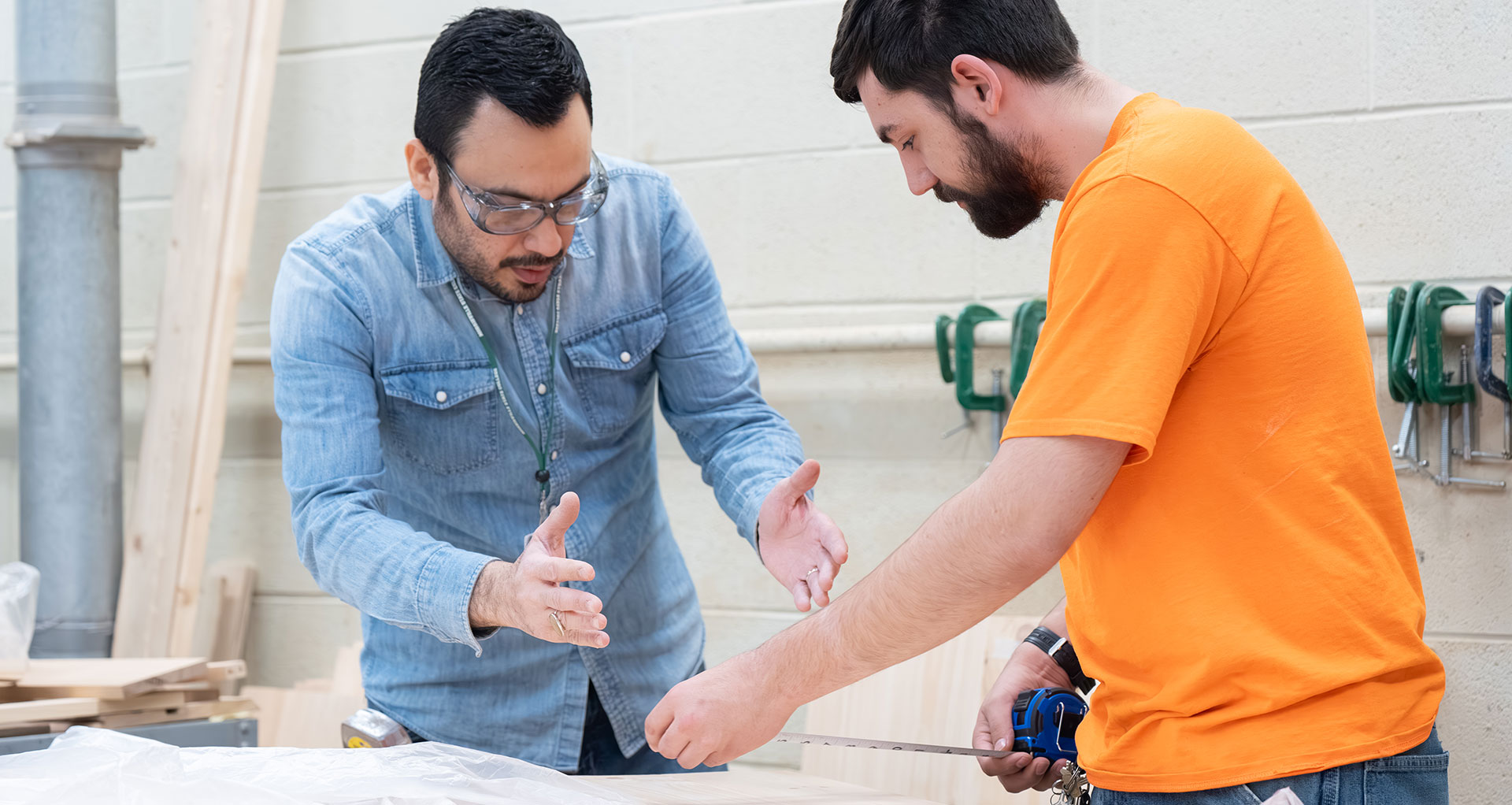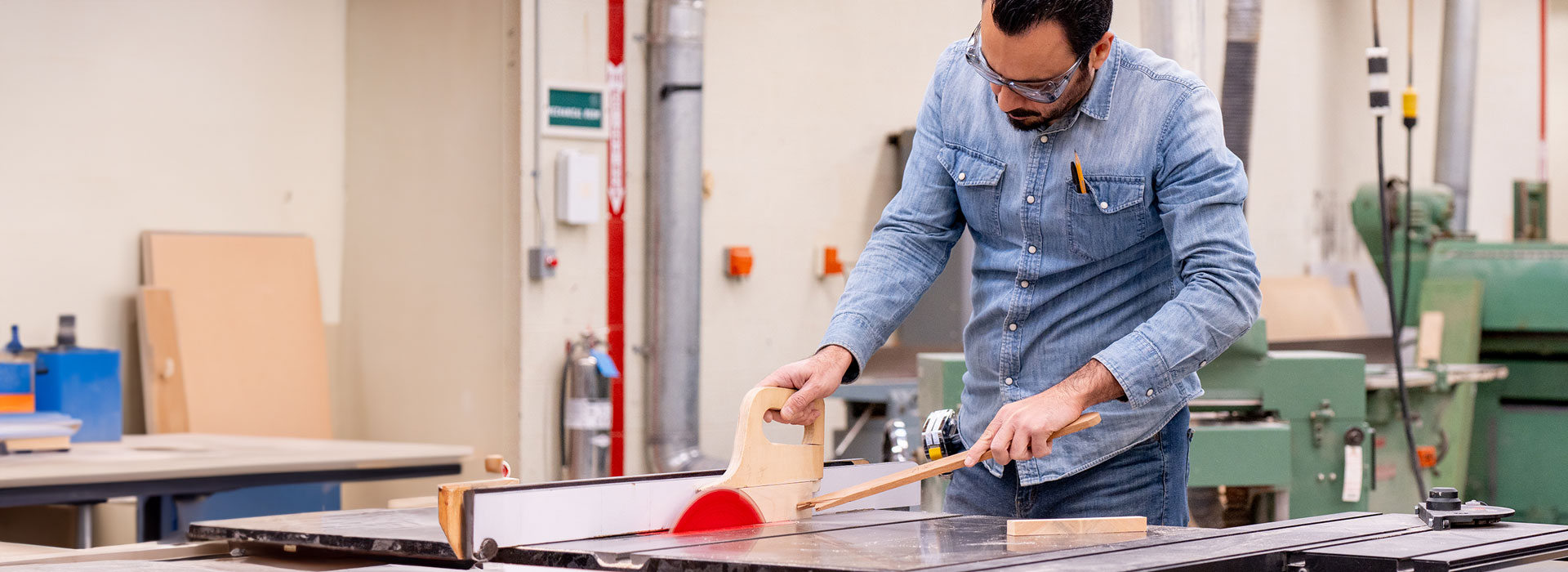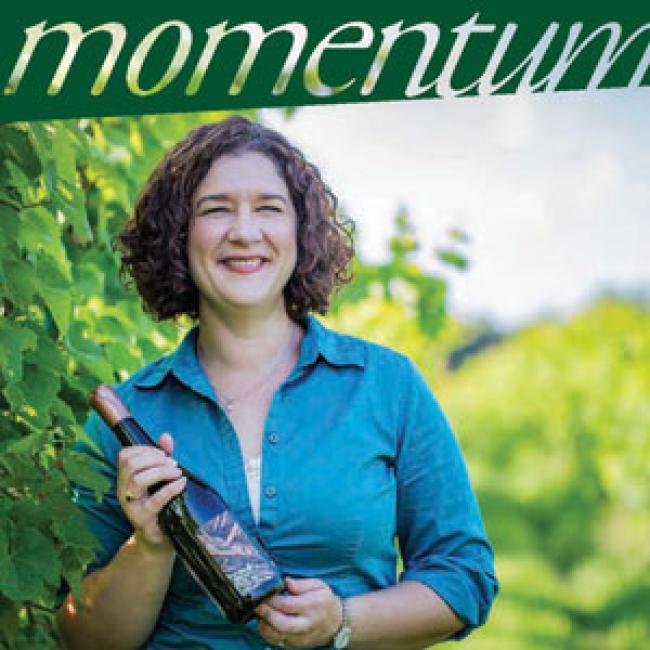When he came to Morrisville as assistant professor of environmental & renewable resources in 2019, Mohammadali Azadfar had a dream — and a plan.
Azadfar — ‘Ali’ to most who know him — was thrilled with the opportunity to teach in the wood products technology and residential construction degree programs. His plan started with fundamental instruction for the students in his classes — and grew beyond measure with the addition of industry research in his courses.
Azadfar came cross-country from Washington State University, where he earned his doctorate in bioenergy and bioproducts engineering. He had years of practical experience in wood products industries and his academic world was heavily centered around research. “I realized [in choosing Morrisville] that if I wanted to work on research, I needed to design my classes with applied research objectives,” he said.
His past research helped fuel a first for air travel. When Alaska Airlines Flight AS-4 took off from Tacoma International Airport in Seattle, Washington, bound for Reagan National Airport in Washington, D.C. on Nov. 14, 2016, it was the first commercial flight that used wood-based biofuel.
Azadfar was among dozens of engineers, scientists and industry experts whose research had created 20 percent of the plane’s fuel, made from limbs and branches of trees in Northwestern forests. It was part of a project sponsored by the U.S. Department of Agriculture, Washington State University and the Northwest Advanced Renewables Alliance.
Washington State’s loss became Morrisville’s gain in 2019, when Azadfar came to lead the Wood Products Technology Department.
In wood products technology, students become well-practiced in bringing logs into the program’s sawmill, cutting, grading and using an industry-sized kiln to dry lumber and cutting and finishing it for use in construction or furniture-making. In residential construction, they learn the basics of construction, energy systems, sanitation, masonry systems, foundation concepts, and plumbing and surveying.
This year Azadfar’s students are learning to operate a sawmill to develop materials used in furniture manufacturing. At the same time, they’re researching how different woodworking machineries such as planers, saws and sanders alter the surface of a piece of wood, making it easier or harder to hold the glue that sticks different pieces of wood together.

Azadfar pointed to a mass of layered maple boards, a cross laminated prototype, on a desk in his office. Each layer is turned perpendicular to the previous one, a process known as cross-lamination. The result is many times stronger than would be a thick plank of the same wood. This kind of manipulation of wood may lead to utilizing low-grade and low-diameter logs for cross-laminated timber production, designing sustainable wood products for railroad ties, ceiling beams and many other wood products.
It’s this kind of hands-on research Azadfar says matches up well with first- and second-year students in a technically based two-year degree program.
“Ali’s approach gives students knowledge beyond the wrench-turning experience,” said Anthony Contento, dean of the School of Agriculture, Business & Technology. “His students walk away understanding more about the industry — the science beyond it,” said Contento, who understands Azadfar’s pursuit of natural sources for energy.
“Ali’s students begin to see applications outside of what most people think of as wood products,” he added.
Azadfar continues to work in research into wood-based biofuels. He said the day will come when biofuels, with zero emissions, replace petroleum-based fuels in planes and other machines.
Gabriel Teeter completed the wood products technology program in 2023 and transferred into the college’s Bachelor of Technology program in technology management. He didn’t think twice when Azadfar offered him a chance to “stay for the scientific stuff,” offering him a work study opportunity in which he could help with research while teaching students machining, the fundamentals of wood — everything he had learned himself.
Teeter plans to open an entrepreneurial business in woodworking near an air-drying lumber mill. The bachelor’s degree program, which serves students from many technical majors, is giving him the background in management and business he’ll need to fulfill his dream.
What he taught me is so great,” Teeter said of Azadfar. “In the second or third semester in the program, you’re learning to operate the sawmill.”
Azadfar said his cross-country move to SUNY Morrisville, after studying and working at the much larger Washington State, served his love of working with students at the base level of the wood products industry. According to Azadfar, there are only about 34 campuses in the country that have two-year, four-year, or graduate programs related to wood science and products. Morrisville is one of only a few in the Northeast.
Azadfar took a much longer journey in coming to the United States in 2011. A native of Iran, he earned bachelor’s and master’s degrees there before deciding that his pursuit of a doctorate degree could best be achieved in the United States. Because Iranian high schools require that students learn two foreign languages, Azadfar took English, focusing on grammar.
His English language training in Iran served him well during his graduate and post doctoral work, which yielded scientific papers, technical reports, patents he co-authored on topics from wood pulp and forest residuals to composite materials, celluloses and lignin, and presentations at national and international conferences.
Azadfar’s wife, Leila, also came to the United States from Iran. They and their 6-year-old son, Sam, live in Syracuse, New York.

Building dreams
Azadfar is not done dreaming about what comes next. He envisions his students doing more advanced research as upper-class students in a bachelor of technology degree program.
On the campus, which is widely known for its applied learning, Azadfar’s students can explore related worlds like the Agricultural and Clean Energy Technology (ACET) Center, a 30,000 square-foot applied learning facility that houses the renewable energy, agricultural engineering and diesel technology programs and includes real-world, state-of-the-art wind, solar, hydro, biofuels and thermal energy labs.
Along with his role in student recruitment, Azadfar is pursuing collaboration opportunities with companies like Stickley Furniture, Bailey Lumber, Johnson Lumber, Cornue Woodworking (located in Nelson, New York), and other industry leaders, some of whom participated in the recent academic review that yielded high marks for the program.
“One thing the review confirmed was that there’s a hunger in the wood industry for our students because of their technical preparation,” Contento said. “Many of our students will work over the summer at companies that will be so impressed with them that they’ll hire them as soon as they graduate.”
Teeter has a similar message, based on his own experience. For students who want hands-on learning with a chance to shape their own futures, “If you’re able to get here, I recommend it,” he said.


